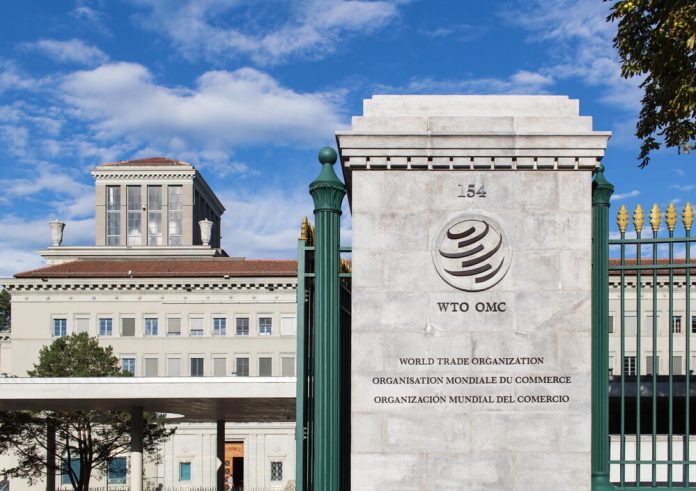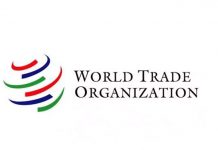This article is written by Meghna Nimbekar, a student from Amity Law School, Delhi. In this article, the author has discussed the World Trade Organization’s Appellate Body, the problems faced and has given remedies for the same.
Table of Contents
Introduction
Almost since the inception of the World Trade Organisation (WTO), the dispute settlement system has been the nucleus of international trade governance. With the establishment of the appellate body (hereinafter referred to as AB) as an appellate institutional arm of the dispute settlement body (DSB), major changes in the dispute settlement system were introduced.
The AB emerged as a ‘true appeals mechanism vis-à-vis panel decisions’, and kept a check on the judicial wing becoming overly powerful. Nevertheless, controversies have arisen with regard to dispute settlement. Minor issues are still all right, but the current crisis faced by the WTO’s AB, is posing the greatest threat in the entire 25 years of its existence.
The reason is that the U.S. has been blocking appointments and reappointments of members. Under the Dispute Settlement Understanding (DSU), three members out of seven, serve on a given case and are selected on a rotation basis. However, the present situation renders the idea of rotations useless, resulting in an increased workload on the remaining members. It was on 11th December 2019, that the term of two members (the U.S. and India) came to an end, leaving the entire process of appeals in an odd situation: only one member (China) remains as of now. Such a halt in the dispute resolution mechanism results in various appeal cases to be pending, and this may increase with time as about 67% of the panel reports are appealed, normally.
However, the responsibility does not just fall on the U.S., but on other members of the WTO also, who have been reluctant to address the issue systematically (Article IX.1), rather have only been able to concoct recommendations in the event that the AB becomes dysfunctional.
The Problem
After having agreed to the ‘compulsory and binding dispute settlement’ in the Uruguay Round, the U.S. had her expectations high from the AB. When these standards had been refuted in the act of dispute settlement, the U.S. embraced a fairly jingoist disposition to WTO dispute settlement. The primary casualties of this jingoism were the U.S. female individuals from the AB, who were delegated after James Bacchus – the first U.S. member – who had served for two terms.
Thereafter, the U.S. kept on debilitating the AB by blocking arrangement of new successors to fill in the opportunities. If this assault is not put to rest, the AB would further be incapacitated. This would be a race back to the General Agreement on Tariffs and Trade (GATT) 1947, where any member could obstruct the decision of the panel (as it occurred in practically 50% of the cases filed in the era of GATT 1947).
Contentions Raised by the U.S.
- The U.S. points at Rule 15 of the AB working procedures whereby a member, whose term has been expired, can finish his pending work on an appeal. Such working methodology, the U.S. contends, infringes upon the member nations to choose or re-appoint the AB member in question. Now, even though the U.S. may somewhere be close to being right in raising this claim, the benefits of the same cannot be overlooked. What one needs to consider is the amount of time that this rule saves, which would otherwise be spent to appoint new members and briefing them on the same case. Not only will the absence of such a rule be tiresome, but also resource-demanding.
- The claim of ‘quasi-automatic reappointment,’ means that the AB member can be re-appointed for a second term. Article 17.2 of the DSU agreements shows a prearranged provision which allows the DSB to re-appoint members.
- The increase in the duration of the proceedings of appeal is the third point of contention. The given time limit as per the DSU is sixty days, or ninety days at the most. However, the AB is not abiding by the limitations of the provisions of the DSU, where the current trend shows an appeal to conclude within a year’s time.
Remedies
In the words of Roberto Azevedo, the Director-General of the WTO –
“[…] this reform process is a serious test for this organisation. Either we evolve and adapt in order to deliver on the expectations of our users – or, ultimately, we give way to a fragmentation of the global trading system.”
It is not certain as to what the U.S. wishes to change, but it is clear that her complaints are due to various decisions given by the AB – the anti-dumping, anti-subsidy and safeguard measures and challenges related therewith.
Separate System for Trade Remedies
What may help here, is a specialized chamber of the AB, which would do more-good than just holding on decisions at the current level and not finding a remedy to it as such. It could have a Secretariat, like the AB, and even the decisions from this board must be subject to the reverse consensus process as adopted by the WTO’s DSB. Moreover, the compliance method would also be similar to that of the AB.
Moratorium Period on Appeals
A moratorium period on appeals can be added. The justifications for the same are thus: firstly, that the appellate body is as it is on the stage of an appeal, which should not be requiring further assistance with the same; and secondly, a majority of decisions of the AB are dealing with trade remedy issues, which is why it makes all the more sense to confine these decisions in a watertight container. This would also limit the consensus-based approach to the appointment of the members.

Need for Appellate Body (AB)
The Trade law network feels that the issues US has with the AB may go past the procedural issues that have been in discussion of late. Not at all like a court that gets command from a constitution, the AB is a standing body for appellate review of panel decisions and is comprised by method for an understanding between member nations and thus its way of working and techniques ought to likewise be dictated by member nations. Be that as it may, this has not been the situation. This perception reverberates with the US concerns and features the need to devise a mechanism which enables member nations to survey the performance of the AB members at all times. There may likewise be an inquiry regarding whether it is a productive layer of settling and in the event that it is required for the settlement of issues between the member nations. There is a quest to find out if panel rulings are enough to abide by the WTO rights, or if the two-tier system of justice is merely causing an unreasonable delay – which yields to the AB being an indispensable arm of the WTO.
The US discernment appears to show that the AB has broken the multilaterally arranged deal between member nations by practicing judicial activism in excess. The US for the absolute first time, bound itself to the official and mandatory jurisdiction of an international court. It has never done that. The customary universal adjudicatory institutions have worked without a mandatory jurisdiction. The WTO dispute settlement mechanism (DSM) is a totally unique system. Not at all like the GATT-time, the decisions are naturally acknowledged except if all member nations (counting the triumphant member nation) obstruct its adoption. The Trump regime has as of late recommended that the ‘Trump administration may wish to deploy the AB crisis to force a return to a more politicized dispute settlement system.’
Along these lines, there is a possibility that this could be viewed as an endeavor to return to the power-based GATT-time where the US could singularly hinder the adoption of a choice as and when it satisfies. However, to sum up, the structures of the GATT and the WTO were formed at various occasions and for an alternative plan, so the idea should be to aim towards working for a better two-tier approach in negotiations and rule-making.
Conclusion
While it is true that the future of the WTO is in deep waters since there is no path laid down for the AB to follow, the WTO DSU is an indispensable body in case of the global economic governance system. There must be due weightage given to the fact that the AB works in constraints, ranging from the time limit of 60-90 days to decide the appeals, and the worst i.e. not being able to award damages, and accepting each case that comes to it. To look at it from a more detailed perspective, it can be said that the members are the ones controlling the scope of the appellate matters.
It is thus, essential that the AB is preserved and the membership of the AB is restored, otherwise the states would be left to resolve their disputes outside of the WTO. However, this does not seem to be a well suited and efficient mechanism, keeping in mind the complexity of the nature of disputes involved, and the need for experts.
LawSikho has created a telegram group for exchanging legal knowledge, referrals and various opportunities. You can click on this link and join:
 Serato DJ Crack 2025Serato DJ PRO Crack
Serato DJ Crack 2025Serato DJ PRO Crack










 Allow notifications
Allow notifications



Hi Meghna, firstly the article is well written and covers actually everything that consists of this political facade. I agree with what the US has pointed out. If you see in 2011, the appellate body changed the tradition of taking consent of the parties to the dispute for extending the period of 90 days. This was one of the major reasons and a setback to the WTO members who were aiming to to get their disputes addressed speedily and in a structured manner. Also Meghna, what do you have to say on Article 25 of the DSU rules that talks about arbitration. Can it be an interim relief for the other WTO members to take this recourse to solve their disputes or it will create a bigger problem. Moreover, how about European Union-Canada getting together as an international trade forum much like WTO. Will they succeed or their roots are itself weak?
My mail id is- [email protected]